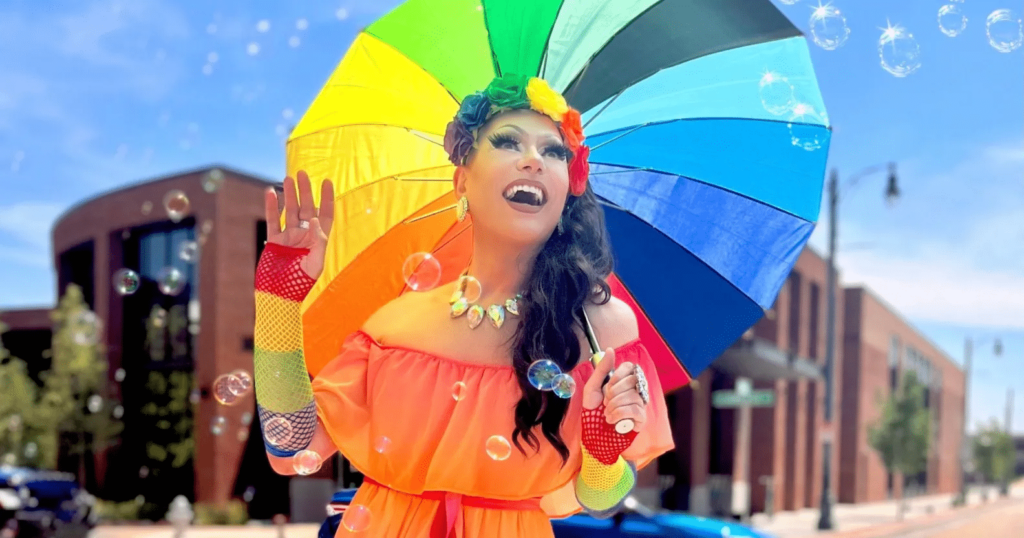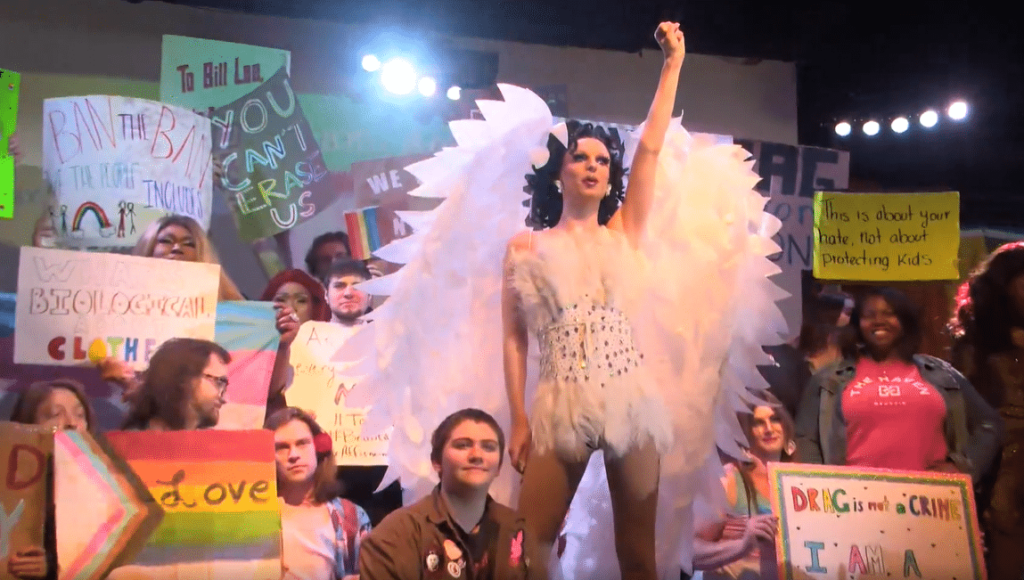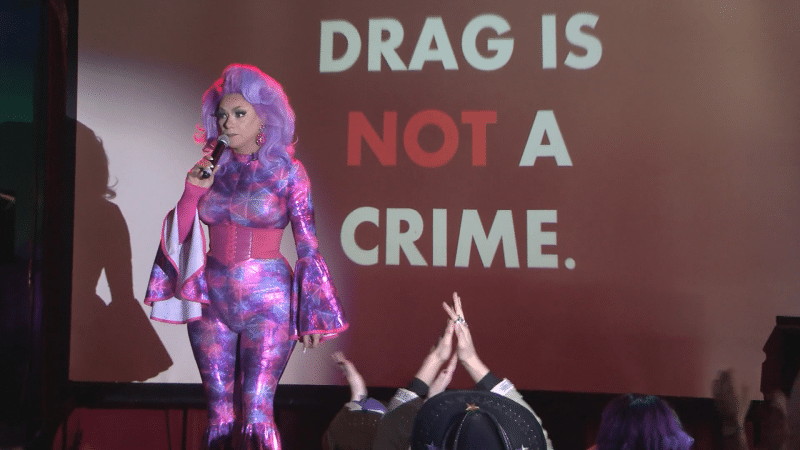Unless you live under a rock, you know about the discrimination and danger those in the LGBTQ+ family face. But lately, the Republicans have decided to move their target specifically to drag queens – and in a pretty terrifying way. It’s a Tennessee drag queen ban whose details would leave any sane person’s head spinning.
WHAT’S THE TENNESSEE DRAG QUEEN BAN

Tennessee Governor Bill Lee signed a bill into law on March 2nd, 2023 that would prohibit “adult cabaret entertainment” on public property or in locations where it could be viewed by a minor – which could be anywhere, even a bar with windows.
The ban, which is part of the broader “Don’t Say Gay” policy (started in Florida), prohibits teachers and school administrators from discussing or promoting homosexuality in any form, including drag performances. Proponents of the law argue that it protects children from “inappropriate” content and prevents the “sexualization” of young people.
Drag is all about love and acceptance. It’s a way to celebrate who we are and to challenge the norms that hold us back. I hope that the Tennessee ban will be overturned and that we can continue to spread love and acceptance through our art.
Alyssa Edwards, drag performer and LGBTQ+ advocate
TENNESSEE DRAG QUEEN BAN – THE LGBT RESPONSE

The law drew obvious criticism from LGBTQ+ advocates and supporters, who argued that it was discriminatory and violated the performers’ freedom of expression. The law is discriminatory and violates performers’ freedom of speech and expression.
They argue that drag performances are a form of art and should be protected under the First Amendment, regardless of the performer’s gender identity or sexual orientation.
The Tennessee drag queen ban is also part of a broader debate about the role of drag culture in society. Drag has a long history as a form of artistic expression and political activism, and many performers use it as a means of challenging gender norms and promoting acceptance and inclusivity.
The ban has sparked protests and demonstrations across the state, with LGBTQ+ advocates and supporters demanding that the law be repealed. Some performers have also taken to social media to share their stories and push back against the stereotypes and prejudices that underlie the ban.
When we silence the voices of LGBTQ+ individuals and their allies, we silence the voices of everyone who believes in equality and justice. We must stand together to fight discrimination and promote acceptance for all.
Laverne Cox, actress and transgender activist
HOW THE BAN HARMS IN OTHER WAYS
Many also argue that the law reinforces harmful stereotypes and stigmatizes LGBTQ+ individuals. By banning drag performances, they say, the state is sending a message that being queer or gender non-conforming is something to be ashamed of and hidden away.
Research has shown that LGBTQ+ individuals are more likely to experience depression, anxiety, and other mental health issues, in part because of the discrimination and stigma they face in society. Laws like the Tennessee drag queen ban can exacerbate these issues in devastating ways.
Beyond this pending law other states have passed rules that would make any decent human being rage in disgust. Besides debating their own laws banning drag performances, states are suing doctors offering gender-affirming care, and even calling affirming parents perpetrators of child abuse. In Florida, Governor Ron DeSantis is proposing crackdowns on everything from books to sports to transition care.
It’s truly horrifying.
And to take things from bad to worse, under this law, a first offense is a misdemeanor and a second is a felony.
AND WHAT ABOUT PRIDE MONTH?

Since the new law say any event can’t take place on public property or where children will be present. That begs the obvious question of whether children or drag performers will be banned from Pride events.
Furthermore, can Pride exist without drag or children? Should this be a decision we have to make? Many Pride celebrations are family-friendly, and parents often bring their children to these events as a way to teach them about inclusivity, acceptance, and diversity.
Having children at Pride events and allowing them to be exposed to drag while seeing all forms of other LGBTQ+ expression and representation is a good thing. It also helps teach empathy to children, showing the various ways people may exist outside of their own homes.
TENNESSEE DRAG QUEEN BAN – FEDERAL COURT STEPS IN

A federal judge in Tennessee on Friday temporarily halted the state’s new law, hours before it was set to take effect. Judge Thomas Parker cited constitutional protections of freedom of speech in issuing a temporary restraining order.
If Tennessee wishes to exercise its police power in restricting speech it considers obscene, it must do so within the constraints and framework of the United States Constitution. The Court finds that, as it stands, the record here suggests that when the legislature passed this Statute, it missed the mark.
Judge Thomas Parker
This coincides with the larger discussions the Tennessee ban has sparked – specifically, a wider discussion about LGBTQ+ rights and discrimination.
Laws like this one can have a chilling effect on free speech and expression. By prohibiting certain types of artistic expression or political speech, such laws undermine the fundamental principles of democracy and open discourse that are essential to a healthy society.
Many LGBTQ+ advocates and supporters are calling for a broader conversation about the importance of inclusivity and acceptance in society. Making these performances illegal sends a message of fear and intolerance that can be damaging to all individuals, regardless of their sexual orientation or gender identity.
Several organizations have taken legal action to challenge the law. The American Civil Liberties Union (ACLU) filed a lawsuit on behalf of two drag performers and an LGBTQ+ advocacy group, arguing that the law violates the performers’ First Amendment rights.
THE TENNESSEE BAN – HALTED, BUT MUST STAND FIRM

Ultimately, the Tennessee ban on drag queen performances is just one example of the ongoing struggle for LGBTQ+ rights and acceptance in society. While progress has been made in recent years, there is still much work to be done to ensure that all individuals are treated with dignity, respect, and equality under the law.
The thing about drag is that it’s all about freedom of expression. The fact that they’re trying to suppress that in schools is a very dangerous thing.
RuPaul, drag performer and television host
As the debate continues, it is important for individuals to educate themselves about the issues at stake and to speak out in support of LGBTQ+ rights and freedom of expression. Whether through activism, education, or simply by standing up for what is right, we all have a role to play in creating a more just and equitable society.
By continuing to speak out and advocate for change, we can help create a world where everyone can express themselves freely, without fear of discrimination or persecution.
And let’s leave you with an image that has been floating around the internet – a young Bill Lee dressed as a cheerleader at school. Can we say hypocrite?

Want more articles? You might like these:
- Why was Oral Sex Illegal in Canada?
- Unbelievable Sex Laws From Around the World
- Pride Flag – Learn Its Amazing History


